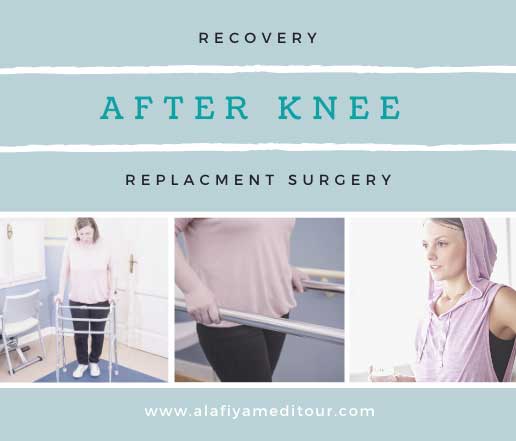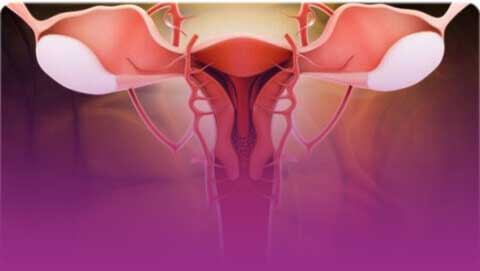
Recovery After Knee Replacement Surgery.
Introduction
When you have total knee replacement surgery, recovery, and rehabilitation are quite crucial. The 12 weeks following surgery are quite significant for recovery, rehab and to slowly return back to your feet, to your lifestyle. Dedicating to the plan advised by the doctors and pushing yourself to do as much as possible each day will help you heal faster from surgery and improve your chances for long-term success.
Read further to learn what to expect during the 12 weeks after knee replacement surgery and how to set goals for your healing.
Day 1
- Rehabilitation begins right after you wake up after the surgery
- Within the first day, your physical therapist (PT) will help you to stand up and walk using an assistive device like a walker, crutch, or a toilet
- A nurse or therapist will also help you with chores such as dressing, bathing, and using the toilet
- Your PT will teach you some basic chores like how to get in and out of bed, how to move around using an assistive device. They may ask you to sit on the side of the bed, walk a few steps, and transfer yourself bedside to the commode
- They will also help you use a continuous passive motion (CPM) machine, which is a device that moves the joint slowly and gently after surgery. You will probably use the CPM possibly at home after the discharge as well. Some patients leave the operating room with their leg already in the device
- Some pain, swelling, bruising are quite common after the Surgery. Try to use your knee as soon as possible, but avoid pushing yourself too much.
The key point to consider at this stage?
- Get plenty of rest, this point cannot be stressed anymore
- With the help of your, PT get out of bed and walk a short distance
- Work on bending and straightening your knee and use a CPM machine if needed
Day 2
- On the second day, you might walk for brief periods using an assistive device
- As you recover from surgery, your activity level will slowly increase
- You can take the shower once the surgery is done, if the knee has been covered with a waterproof bandage else you got to wait for 5-6 days.
- Your PT might advise you to use a regular toilet rather than a bedpan. They might ask you to try to climb a few steps at a time
- You should work on achieving full knee extension at this point. Try bending the knee by at least 10 degrees if possible
What can you do at this stage?
- Try to be a bit active. Try to stand up, sit, change locations, and use a toilet instead of a bedpan
- You should try to walk a little further and climb a few steps with help from your PT
- You can take shower the next day if the doctor has used a waterproof dressing.
Discharge day
- You will likely be discharged from the hospital 3 days after knee replacement surgery, but this can be longer depending on the person.
- Your discharge date would depend heavily on the physical therapy you need, how quickly you are able to improve, your health before surgery, your age, and any medical issues.
- By now your knee should be getting stronger and you’ll be able to increase your exercise and other activities. You should try to work towards bending your knee further with or without a CPM machine.
- Your doctor will slowly shift yours to lower-dose pain medication.
What can you do at this stage?
At discharge, you should be able to:
- Stand with little or no help
- Go on long walks outside your hospital room and rely lesser on assistive devices
- Climb up and down a flight of stairs with help
By week 3
- By the time your rehab should be well under away
- You should be able to walk around more freely while experiencing reduced pain. You’ll require fewer and less potent pain medications.
- Your daily routine must include exercise your PT has given you as these will enhance your mobility and range of motion.
- You might need to keep utilizing the CPM machine during this time.
What can you do at this stage?
You can probably walk and stand for more than 15 minutes, bathing and dressing should be manageable:
- Within a week after the surgery, your knee should be able to bend 90 degrees, though it may be difficult due to pain and swelling
- After 8–12 days, you should be able to fully extend your leg
- You can try not walking with your crutches at this point
- Most people are using a cane or nothing at all by 3 weeks
Weeks 4 to 6
- After 4-6 weeks, If you’ve stayed on your exercise and rehab schedule, you should feel a dramatic improvement in the range of bending and knee strength
- The swelling and inflammation should also have reduced significantly
- The goal at this point is to increase your knee strength and range of motion using physical therapy
- Your PT may ask you to go on lengthier walks and stop using the assistive devices completely
What can you do at this stage?
- Ideally, at this point, you’ll feel as though you’re regaining your freedom. Toward the end of this period, you can probably walk further and be able to do your daily chores with more ease
- If you have a desk job you can return to work at this point, after getting medical clearance
- Some people start driving within 4-6 weeks of knee replacement surgery, but it’s better to get a clearance from your surgeon first
- You can also travel short distances at this point
Weeks 7 to 11
- At this point, it has been almost 2 months since your knee replacement surgery
- Your goals will include rapidly improving your mobility and range of motion to possibly around 115 degrees and your PT would modify your exercises to suit the same
Exercises might include:
- Toe and heel raise Standing Exercise: Rise up on your toes and then your heels
- Partial knee bends Standing Exercise: Bend your knees and move upward and downward
- Hip abductions: While lying on your side, raise your leg in the air
- Leg balances: Standing Exercise: Stand on one foot at a time
- Step-ups: Step up and down on a single step
- Bicycling on a stationary bike
This is a very important time in your recovery. Devoting to rehab will determine how quickly you can return to a normal, active lifestyle.
What can you do at this stage?
At this point, you should be well on the path to recovery. You should have much lesser stiffness and pain. You should be able to walk at least 75-100 meters without any type of assistive device. You can do more physical activities, including swimming, bicycling, etc.
Week 12
- At this point, you are quite close to the end of your recovery. It is quite important to keep doing your workouts and avoid high-impact movements that could damage your knee or the surrounding tissues
- You should avoid Running, Aerobics, Skiing, football, etc. other high-intensity exercises
- Keep checking with your doctors and avoid starting any new activities before asking them first
What can you do at this stage?
- At this stage, you can begin to enjoy activities like golf, slow dancing, and bicycling. The more committed you are to rehab, the sooner this can happen
- Likely, you won’t feel any pain during week 12 of knee replacement surgery
- You will also have a full range of motion in your knee
Week 13 and beyond
- This can now be termed as your post-rehab period
- Your knee will keep on improving gradually over time, the pain will reduce significantly
- Many reputed surgeons say that it can take up to 3 months to return to most activities, and 6 months to a year before your knee is as strong and resilient as it can be
- At this phase of recovery, you can start to loosen up
- Studies show that there’s a 90 to 95 percent chance that your knee will last 10 years, and an 80 to 85 percent chance it will last 20 years
- Itis important to stay in touch with your surgeon and PT and to have regular checkups overtime to keep checking the progress.





